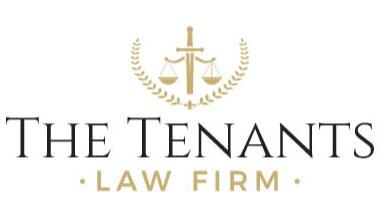Defending Your Home: Strategies to Challenge Wrongful Ellis Act Evictions
While the Ellis Act was designed to allow property owners to exit the rental market, instances of misuse and wrongful evictions have raised concerns about tenant rights and housing justice. As we dive deeper into the topic of wrongful Ellis Act evictions we will discuss signs of coercion, legal protections for tenants, and the crucial role that lawyers play in defending against wrongful evictions.
Understanding Ellis Act Evictions
The Ellis Act is a California state law enacted in 1985 that allows property owners to exit the residential rental market and withdraw their properties from rental use. The law was originally intended to provide an option for landlords looking to leave the rental business, typically for reasons such as retirement or a shift in investment strategy. When invoking the Ellis Act, property owners must evict all existing tenants, and they cannot re-enter the rental market for at least five years. While the Ellis Act serves a legitimate purpose, concerns have arisen about its misuse, particularly when landlords use it to evict tenants for reasons other than leaving the rental business, leading to what are often referred to as wrongful Ellis Act evictions.By understanding the legitimate reasons for invoking the Ellis Act, we canidentify misuse and wrongful evictions.
Identifying Wrongful Ellis Act Evictions
Wrongful Ellis Act evictions often involve landlords exploiting the law to avoid rent control regulations, convert properties, or engage in speculative real estate practices. The use of coercian and pressure tactics in buyout negotiations contribute to the wrongful evictions. Additionally, if landlords fail to adhere to legal procedures, provide proper notice, or if they re-enter the rental market within the mandated timeframe after eviction, these actions are also deemed wrongful. Essentially, any use of the Ellis Act that deviates from its original intent and infringes upon tenant rights can be considered a wrongful Ellis Act eviction.
Legal Framework
Tenants facing eviction under the Ellis Act have rights, including receiving proper notice, the right to relocation assistance, and protections against harassment. California state laws, such as the Tenant Protection Act of 2019, restrict rent increases and provide just-cause eviction protections. The legal framework surrounding wrongful Ellis Act evictions requires landlords to follow specific procedures, ensuring fair treatment and due process for tenants. Lawyers play a crucial role in assisting tenants by providing legal consultation, assessing the validity of eviction claims, and defense strategies. A lawyer's expertise extends to navigating the intricacies of tenant rights, the Ellis Act, and other relevant housing laws, empowering tenants with the knowledge needed to challenge wrongful removals. Lawyers can advocate on behalf of tenants in negotiations, settlements, or, if necessary, in court, employing legal tools to challenge the misuse of the Ellis Act and seek compensation for any violations of tenant rights. By seeking legal help, tenants facing wrongful Ellis Act evictions gain an ally in pursuing justice, holding landlords accountable, and working towards fair and lawful resolutions.
